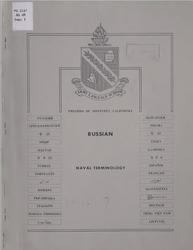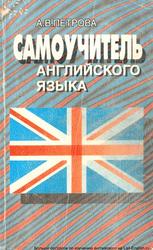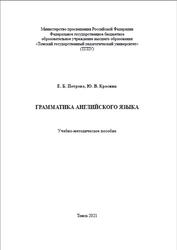Местоимение в современном английском языке, Емельянова О.В., Петрова E.С., 1997.
Пособие по грамматике английского языка, продолжающее серию “University Grammar”, посвящено описанию всех разрядов местоимений и особенностей их функционирования в речи. В заключение даны вопросы для повторения и самоконтроля, а также лингвистический глоссарий, содержащий использованные грамматические термины и их русские соответствия.
Для студентов и аспирантов, свободно читающих по-английски и завершивших начальный этап изучения английской грамматики.
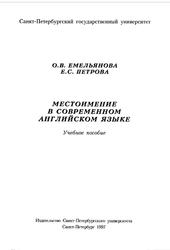
The category of gender.
The category of gender shows whether the unit of language denotes a personal or поп-personal entity. Therefore, personal gender is contrasted to non-personal gender. With reference to pronouns, these terms may be somewhat confusing: for instance, it, which is grammatically a third person (i.e. personal) pronoun, has to be qualified as non-personal; at the same time, who, which is an interrogative/relative, not a personal pronoun, has to be described as expressing personal gender.
The category of personal gender implies a further opposition of the biological sex of the referent: female or male. Feminine gender expresses the female sex of the referent, and masculine gender expresses the male sex. The pronoun it, even though it occasionally refers to a living being (such as a bird, a baby, etc.) is neuter, i.e. unmarked as feminine or masculine. Sex distinctions are restricted to the third person pronouns: personal, possessive and reflexive.
Contents.
ПРЕДИСЛОВИЕ.
1. THE PRONOUN AS A PART OF SPEECH.
1.1. INTRODUCTION.
1.2. Grammatical and Lexical Categories of Pronouns.
1.2.1. The category of person.
1.2.2. The category of number.
1.2.3. The category of case.
1.2.4. The category of gender.
2. PERSONAL (CENTRAL) PRONOUNS.
2.1. Personal pronouns proper.
2.1.1. First person.
2.1.2. Second person.
2.1.3. Third person.
2.2. Personal possessive pronouns
2.3. Personal reflexive pronouns.
3. DEMONSTRATIVE PRONOUNS.
3.1. Demonstratives in situational reference.
3.2. Demonstratives in discourse (discourse reference).
4. INDEFINITE PRONOUNS.
4.1. Indefinite pronouns proper.
4.2. Compound pronouns.
4.2.1. The use of ’-one', '-body' and '-thing' compounds.
4.2.2. The use of 'some-' and 'any-' compounds in different contexts.
4.3. Negative pronouns.
4.4. Distributive pronouns.
5. RECIPROCAL PRONOUNS.
6. INTERROGATIVE / RELATIVE PRONOUNS.
QUESTIONS FOR RECAPITULATION AND DISCUSSION.
GLOSSARY OF LINGUISTIC TERMS.
SELECTED BIBLIOGRAPHY.
Бесплатно скачать электронную книгу в удобном формате, смотреть и читать:
Скачать книгу Местоимение в современном английском языке, Емельянова О.В., Петрова E.С., 1997 - fileskachat.com, быстрое и бесплатное скачивание.
Скачать pdf
Ниже можно купить эту книгу, если она есть в продаже, и похожие книги по лучшей цене со скидкой с доставкой по всей России.Купить книги
Скачать - pdf - Яндекс.Диск.
Дата публикации:
Теги: учебник по английскому языку :: английский язык :: Емельянова :: Петрова
Смотрите также учебники, книги и учебные материалы:
Следующие учебники и книги:
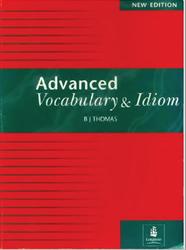 Advanced Vocabulary and Idiom, Thomas В.J., 1989 — Advanced Vocabulary and Idiom is designed to teach, test and practise the vocabulary of EFL students at a level leading … Книги по английскому языку
Advanced Vocabulary and Idiom, Thomas В.J., 1989 — Advanced Vocabulary and Idiom is designed to teach, test and practise the vocabulary of EFL students at a level leading … Книги по английскому языку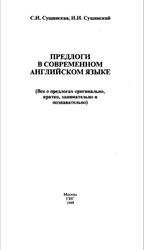 Предлоги в современном английском языке, Все о предлогах оригинально, кратко, занимательно и познавательно, Сушинская С.И., Сушинский И.И., 1999 — Настоящее пособие предназначено для лиц, углубленно изучающих английский язык, студентов, учителей, преподавателей, а также начинающих или продолжающих изучать английский язык. … Книги по английскому языку
Предлоги в современном английском языке, Все о предлогах оригинально, кратко, занимательно и познавательно, Сушинская С.И., Сушинский И.И., 1999 — Настоящее пособие предназначено для лиц, углубленно изучающих английский язык, студентов, учителей, преподавателей, а также начинающих или продолжающих изучать английский язык. … Книги по английскому языку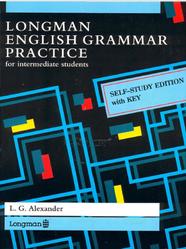 Longman English grammar practice for intermediate students, Alexander L.G., 1990 — This book deals entirely with English as a foreign language (EFL). It is for intermediate students who are working with … Книги по английскому языку
Longman English grammar practice for intermediate students, Alexander L.G., 1990 — This book deals entirely with English as a foreign language (EFL). It is for intermediate students who are working with … Книги по английскому языку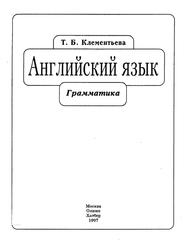 Английский язык, грамматика, Клементьева Т.Б., 1997 — Новое пособие Т. Б. Клементьевой English. Active Grammar” включает полный свод грамматических правил английского языка в виде таблиц и схем. … Книги по английскому языку
Английский язык, грамматика, Клементьева Т.Б., 1997 — Новое пособие Т. Б. Клементьевой English. Active Grammar” включает полный свод грамматических правил английского языка в виде таблиц и схем. … Книги по английскому языку
Предыдущие статьи:
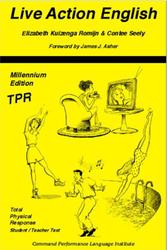 Live Action English, Romijn E.K., Seely C. — Фрагмент из книги: MAKING A TABLE. 1. You re going to make a table. 2. Choose a nice board. 3. … Книги по английскому языку
Live Action English, Romijn E.K., Seely C. — Фрагмент из книги: MAKING A TABLE. 1. You re going to make a table. 2. Choose a nice board. 3. … Книги по английскому языку Grammatically Correct, The Writer’s Essential Guide to Punctuation, Spelling, Style, Usage and Grammar, Stilman A., 1997 — This book is not as comprehensive as some of the others out there because I have chosen to concentrate on … Книги по английскому языку
Grammatically Correct, The Writer’s Essential Guide to Punctuation, Spelling, Style, Usage and Grammar, Stilman A., 1997 — This book is not as comprehensive as some of the others out there because I have chosen to concentrate on … Книги по английскому языку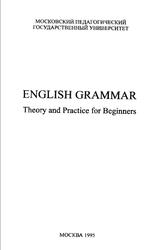 English Grammar, Theory and Practice for Beginners, Истомина Е.А., Саакян А.С., 1995 — English Grammar. Theory and Practice for Beginners является базовым теоретическим и практическим курсом грамматики современного английского языка для студентов первого … Книги по английскому языку
English Grammar, Theory and Practice for Beginners, Истомина Е.А., Саакян А.С., 1995 — English Grammar. Theory and Practice for Beginners является базовым теоретическим и практическим курсом грамматики современного английского языка для студентов первого … Книги по английскому языку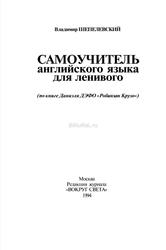 Самоучитель английского языка для ленивого, Шепелевский В., 1994 — Перед вами ленивый самоучитель . Для ленивого. Вы же знаете присловье: Изобретает самый ленивый . То есть тот, кто хочет … Книги по английскому языку
Самоучитель английского языка для ленивого, Шепелевский В., 1994 — Перед вами ленивый самоучитель . Для ленивого. Вы же знаете присловье: Изобретает самый ленивый . То есть тот, кто хочет … Книги по английскому языку


